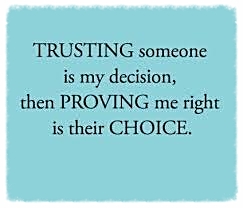Don’t get me wrong, I love civilization. I like people, get a kick out of cultural exchange and generally I am a social animal. Most of the time! At the same time, I am a loner; introspective, somewhat insecure and often my own impediment to civilized consort. If you asked me to choose, I would allow that I need the former, but prefer the latter. Yet, both of these preferences are highly interdependent. I need civilization to maintain my ego; human interaction is key to my being. But the strain of my ego somewhat embarrasses me and drives me away from myself and away from others. In an odd way I am experiencing the classic “six degrees of separation” that we all experience. Except the six degrees are those between the social being and the loner that is me. I have always been this way. Perhaps, there is a good reason I am a Gemini.
This dichotomy is important. The former is necessary for the latter to thrive. For me, being social stimulates introspection. For example, as the Executive Director of the Greater Impact Foundation, it is critical that I connect with the key people wherever they are, who are striving to enable those in greatest need to exit poverty. This means immersing myself in different cultures across all social and economic strata in order to learn as much as possible about the organizations that we are considering and the people that run them. That experience informs me on a business level, but at the same time it forces an introspection that causes me to constantly reevaluate my personal priorities. All one has to do is meet people like Sanga Moses at Eco-Fuel Africa www.ecofuelafrica.co.ug , a green energy company in Uganda or Shawn Cheung, the CEO for Raising the Village www.raisingthevillage.org , also in Uganda, listen to their personal stories and observe what they are endeavoring to achieve to help those in greatest need and you cannot help turning inward to reexamine what you are doing with your own time and energy to truly have a lasting positive impact that is less about one’s self and more about the health of the global community. Going outward to turn inward is a very positive experience for me. When you couple that experience with the leadership of some of the organizations we work with, with the people they are trying to help, it has a compounding effect.
I was blessed at birth. Born into a solid upper middle class family in the U.S. I was given every opportunity to thrive. Conversely, many of the people I meet on the road come from some of the poorest places on the planet. Opportunity is a rare commodity. It is not just the juxtaposition of these two realities that causes me to internalize my good fortune hoping to activate it in a positive way for those less fortunate than me. Many factors come into play. But, this exposure to the realities of what life is like for the poorest of the poor certainly strips away any pretense and unveils a more enlightened self and that, at least for me, is a very good feeling.
Again, don’t get me wrong. I spend a lot of time alone processing the experiences I have had with others like Sanga and Shawn. It seems like two different selves interacting in a one act play that is my life and it continually reinforces my need, and maybe yours as well, to be social in order to know oneself.




















